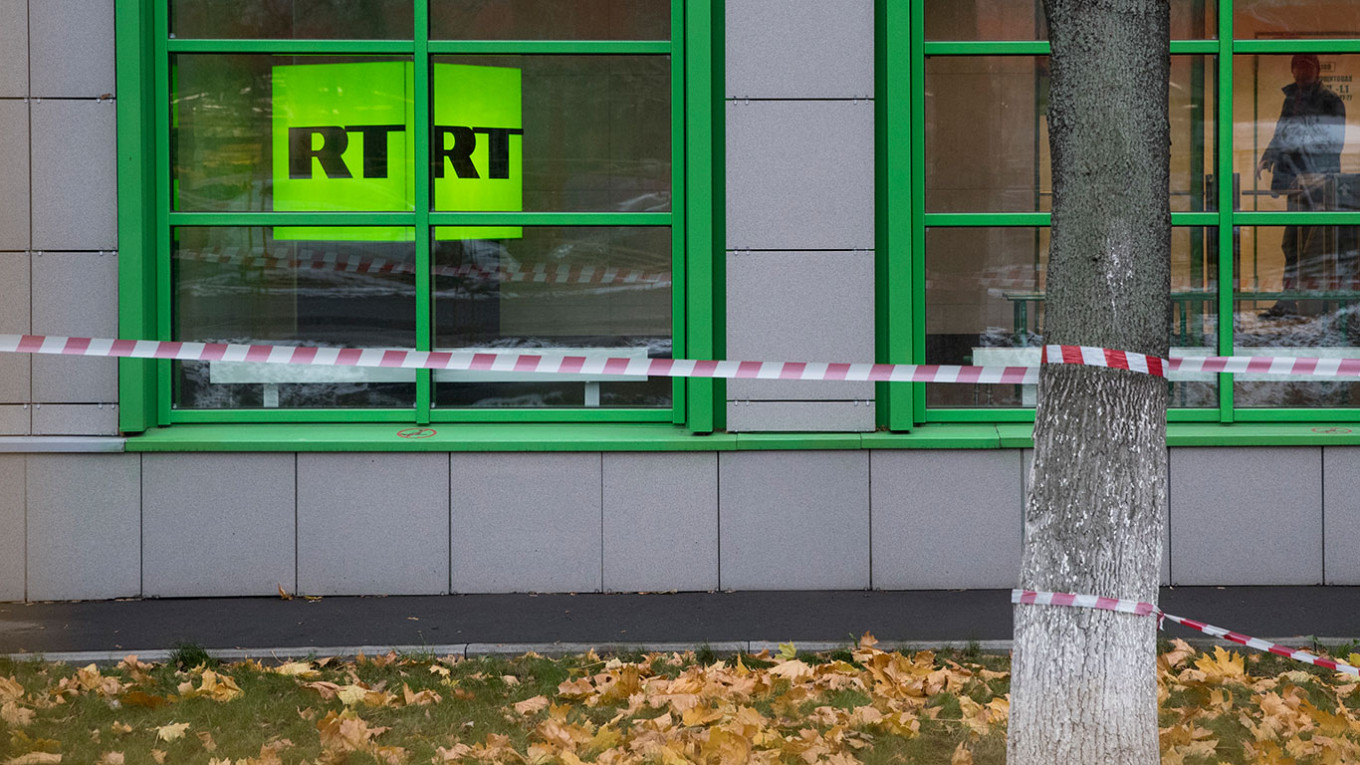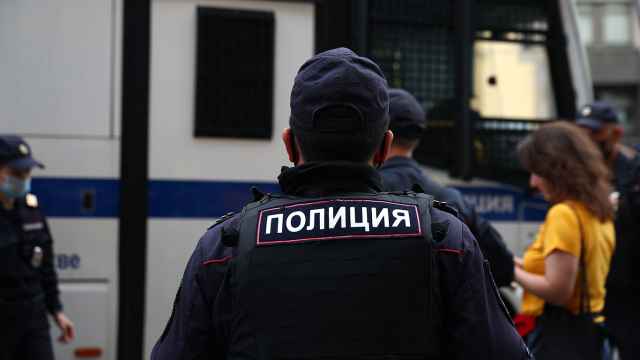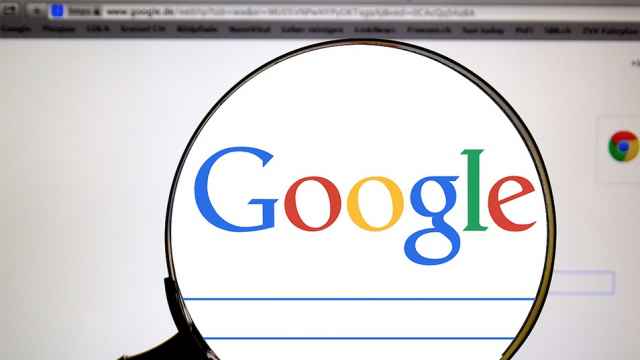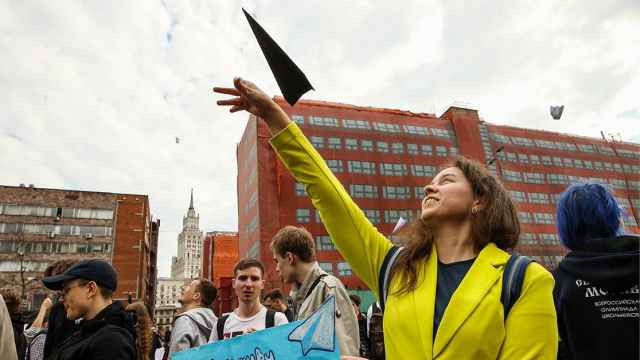Russia has decried YouTube’s decision to delete the state-funded RT broadcaster’s German-language channels as “information warfare,” saying it could block German media or even YouTube itself in retaliation.
YouTube said Tuesday it had deleted RT’s DE and DFP channels for repeatedly breaching its coronavirus misinformation policy. The German government, responding to accusations of involvement from Moscow, said it had nothing to do with the U.S. company’s moves.
“This is a real media war declared by the state of Germany against the state of Russia,” RT editor-in-chief Margarita Simonyan tweeted, calling on the Russian government to ban German media, including Deutsche Welle (DW), ARD and ZDF, “out of self-respect.”
Kremlin spokesman Dmitry Peskov told reporters that Russian authorities should have “zero tolerance” toward what he described as “censorship” and “hindering the dissemination of information through media,” according to the state-run TASS news agency.
“If our oversight bodies find that this is indeed a violation of our legislation, then of course the possibility of forcing [YouTube] to comply with our laws shouldn’t be excluded,” Peskov said. His comments came hours after Roskomnadzor, the Russian government’s media watchdog, threatened to block YouTube in the country if it didn’t restore the banned channels.
Roskomnadzor has asked Google, whose parent company Alphabet owns YouTube, to lift all restrictions from RT DE and DFP, according to Simonyan. Otherwise, according to DW, Google faces a fine of up to 1 million rubles ($13,750) for not restoring the banned channels.
Russia’s Foreign Ministry echoed Simonyan’s description of RT’s YouTube ban as “information war” and said in a statement that it was considering retaliatory steps.
“The nature of the incident, which fully fits into the logic of the information war unleashed against Russia, makes symmetrical retaliatory measures against German media in Russia not only appropriate, but also necessary,” it said.
The Foreign Ministry added that it had asked “competent Russian authorities” to draft a list of such retaliatory measures against German media.
The German government has warned against potential retaliation against German media in Russia.
"Anyone calling for such retaliation does not show a good relationship with freedom of the press," Chancellor Angela Merkel's spokesman Steffen Seibert told reporters in Berlin, adding that the YouTube action "was not a state measure."
YouTube was involved in another controversy this month after it removed jailed Kremlin critic Alexei Navalny’s voting strategy videos, citing a government order, ahead of Russia's September parliamentary elections.
That sparked cries of censorship in Russia and abroad, with Navalny accusing U.S. tech giants Google and Apple of acting as the Kremlin’s “accomplices.” Apple and Google removed the opposition leader’s “Smart Voting” app that advised supporters on how to vote out Kremlin allies ahead of the Sept. 17-19 vote in which the pro-Putin party maintained its supermajority amid widespread claims of fraud.
YouTube CEO Susan Wojcicki said Monday that the company considers free speech to be one of its “core values” despite the removal of Navalny’s voting videos.
Vasily Piskarev, who heads Russia’s parliamentary commission on foreign interference, noted later Wednesday that Russia has “every reason to retaliate” against DW due to the broadcaster’s previous breaches of Russian law.
A Message from The Moscow Times:
Dear readers,
We are facing unprecedented challenges. Russia's Prosecutor General's Office has designated The Moscow Times as an "undesirable" organization, criminalizing our work and putting our staff at risk of prosecution. This follows our earlier unjust labeling as a "foreign agent."
These actions are direct attempts to silence independent journalism in Russia. The authorities claim our work "discredits the decisions of the Russian leadership." We see things differently: we strive to provide accurate, unbiased reporting on Russia.
We, the journalists of The Moscow Times, refuse to be silenced. But to continue our work, we need your help.
Your support, no matter how small, makes a world of difference. If you can, please support us monthly starting from just $2. It's quick to set up, and every contribution makes a significant impact.
By supporting The Moscow Times, you're defending open, independent journalism in the face of repression. Thank you for standing with us.
Remind me later.






